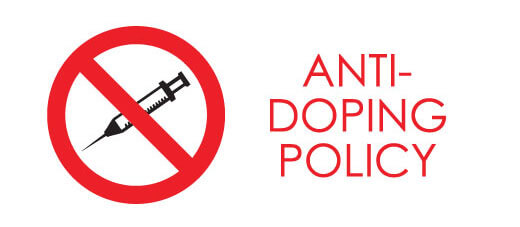For most sports fans, watching a Wimbledon final is an occasion filled with excitement and admiration for the athletes on court. But for British professional cyclist Lizzy Banks, the 2025 men’s final carried a very different weight. While millions celebrated Jannik Sinner’s victory at the All England Club, Banks found herself struggling to watch. Her discomfort had nothing to do with the sport of tennis itself — instead, it was tied to her own career-shattering experience with an anti-doping case.
Banks, who received a two-year ban after failing a drugs test in 2023, says she could not reconcile the differences in how her case and Sinner’s were treated by authorities. Both, she points out, involved findings of contamination and no intentional doping. Yet, while Sinner returned to win Wimbledon, Banks endured a prolonged battle that left her career, health, and livelihood in ruins.

Wimbledon-final-is-an-occasion-filled-with-excitement-and-admiration-for-the-athletes-on-court
“I Was So Upset” — Banks on Watching Wimbledon
Speaking to The Times, Banks opened up about the emotional impact of seeing Sinner lift the Wimbledon trophy..”
Her frustration was not directed at Sinner personally. Instead, it was the disparity in treatment and outcomes that stung the most.
Two Cases, Two Outcomes
Both Banks and Sinner tested positive for banned substances in situations where there was no evidence of intentional doping. In Sinner’s case, the initial sanction was zero months, later increased to a three-month ban after an appeal to the Court of Arbitration for Sport (CAS). He was able to serve that suspension and resume competing quickly.
Banks’ case followed a very different path. Initially, UK Anti-Doping (UKAD) agreed there had been contamination and no fault on her part, meaning no ban was issued. However, the World Anti-Doping Agency (WADA) refused to accept this outcome. They challenged the ruling, dismissed the testimony of UKAD’s expert witness — Professor David Cowan — and pushed for a harsher penalty.
The result: a two-year ban, backdated but devastating nonetheless.

UK-Anti-Doping-UKAD-agreed-there-had-been-contamination-and-no-fault-on-her-part-meaning-no-ban-was-issued
The Positive Test That Changed Everything
Banks’ ordeal began in May 2023, when she underwent a routine urine test. The sample came back positive for chlorthalidone, a diuretic she had never heard of before. Diuretics are banned because they can be used to mask the presence of other prohibited substances, though there was no evidence Banks had done so.
Professor Cowan’s investigation concluded that the likely cause was contamination in one of her medications — either her asthma treatment or a pill taken after a dental procedure. He believed the contamination happened during manufacturing, not as a result of intentional ingestion.
Still, the CAS panel was unconvinced. While describing her as a “person of integrity”, they said she could not conclusively prove the source of the contamination. Under anti-doping rules, that lack of proof was enough to warrant a sanction.
The Human Cost of the Ban
For Banks, the punishment was more than just time away from competition. It fundamentally altered her life.
She says the emotional and physical toll was immense — affecting not only her but also those closest to her.
“Just Because I’m Little Old Me”
Perhaps the most painful part for Banks was the feeling of being treated differently because of her profile in the sporting world.
Her comments reflect a broader concern about consistency in anti-doping enforcement — whether higher-profile athletes receive more lenient treatment, or at least more favorable conditions, than those in smaller sports.
The Timeline of Banks’ Battle
-
May 2023 — Routine urine test taken; results show presence of chlorthalidone.
-
Initial Ruling — UKAD accepts contamination defense; no ban imposed.
-
WADA Appeal — WADA disputes ruling, dismisses expert testimony from Professor Cowan.
-
CAS Hearing — Panel acknowledges Banks’ integrity but says she cannot prove the contamination source.
-
Final Decision — Two-year ban imposed, backdated but still career-impacting.
Why the Sinner Case Was Viewed Differently
While the details of Sinner’s case remain partly confidential, what is publicly known is that his positive test was also linked to contamination, and no intentional wrongdoing was found. The difference was in how the case progressed — Sinner’s ban was minimal, allowing him to quickly resume competition and maintain his career momentum.
Anti-doping experts note that each case is judged on its own evidence, but Banks’ experience raises questions about how similar findings can lead to vastly different sanctions.

Sinner’s-ban-was-minimal-allowing-him-to-quickly-resume-competition-and-maintain-his-career-momentum
A System Under Scrutiny
The disparity between the two cases highlights ongoing debates about fairness and proportionality in anti-doping regulations. Critics argue that the system can be overly rigid, placing an impossible burden of proof on athletes to explain trace levels of prohibited substances.
Contamination cases are particularly complex — proving the exact source is often impossible, especially if the contamination is small and detected long after ingestion. For athletes without the resources or public profile of top-tier stars, fighting such cases can be an uphill battle.

The-disparity-between-the-two-cases-highlights-ongoing-debates-about-fairness-and-proportionality-in-anti-doping-regulations
Life After the Ban
Banks’ two-year ban has now been served, but the impact on her career is lasting. At 34, returning to the same competitive level will be challenging, especially given the physical demands of professional cycling. Yet, she remains vocal about her experience, hoping it will shed light on flaws in the anti-doping process.
Her case also serves as a cautionary tale for athletes — that even unintentional, unexplained contamination can lead to severe consequences under current rules.

Banks-two-year-ban-has-now-been-served-but-the-impact-on-her-career-is-lasting
Looking Forward
For Banks, watching Jannik Sinner lift the Wimbledon trophy was not about jealousy or bitterness toward the player himself. Instead, it was a reminder of the career she lost and the feeling that the system did not give her the same consideration.
Her story is a complex one — balancing the need for strict anti-doping measures to keep sport clean, with the reality that such measures can sometimes produce outcomes that feel deeply unfair.
As for Sinner, his Wimbledon triumph will stand as one of the highlights of his career. For Banks, it was a moment that brought old wounds to the surface — a stark reminder that in the world of professional sport, not all athletes fight their battles on equal ground.
Click here to watch more!



















Comments